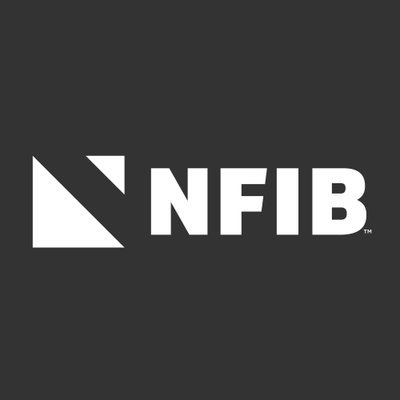
The National Federation of Independent Businesses (NFIB) Small Business Optimism Index increased by 2.2 points in October, reaching 93.7, marking the 34th consecutive month it has remained below the 50-year average of 98. Additionally, the Uncertainty Index climbed seven points to 110, its highest recorded level, according to a release from NFIB.
A seasonally adjusted net negative 20% of small business owners nationwide reported higher nominal sales over the past three months, the lowest reading since July 2020.
“With the election over, small business owners will begin to feel less uncertain about future business conditions,” said NFIB Chief Economist Bill Dunkelberg, in the release. “Although optimism is on the rise on Main Street, small business owners are still facing unprecedented economic adversity. Low sales, unfilled jobs openings, and ongoing inflationary pressures continue to challenge our Main Streets, but owners remain hopeful as they head toward the holiday season.”
Key findings:
- A net negative 20% of all owners (seasonally adjusted) reported higher nominal sales in the past three months, down three points from September and the lowest reading since July 2020.
- Seasonally adjusted, a net 31% reported raising compensation, down one point from September. The last time it was this low was April 2021.
- The net percent of owners expecting higher real sales volumes rose five points to a net negative 4% (seasonally adjusted), the highest reading of this year.
- A net 5% of owners reported paying a higher rate on their most recent loan, down seven points from September and the lowest reading since January 2022.
- 35% (seasonally adjusted) of all owners reported job openings they could not fill in the current period, up one point from September.
- 23% of owners reported that inflation was their single most important problem in operating their business (higher input and labor costs), unchanged from September and remaining the top issue.
“Iowa’s small businesses are showing resilience as we approach the holiday season,” said NFIB Iowa State Director Matt Everson, in the release. “The 2.2-point rise in the Small Business Optimism Index is encouraging, but with 34 consecutive months below the 50-year average, we know there’s still work to be done to support our Main Street businesses. Lawmakers in Des Moines must prioritize bills that aim to bolster Iowa’s small business community and keep the Hawkeye State competitive.”
According to NFIB’s monthly jobs report, 35% of small business owners reported job openings they could not fill in October, seasonally adjusted, up one point from September’s lowest level since January 2021. Among the 53% of owners hiring or attempting to hire in October, 87% cited a lack of qualified applicants.
54% percent of owners reported capital outlays in the last six months, up three points from September. Of these, 35% reported spending on new equipment, 23% acquired vehicles, and 14% improved or expanded facilities. 11% spent on new fixtures and furniture, while 5% acquired buildings or land for expansion. Capital outlays are expected in the next six months by 22% of owners, seasonally adjusted, up three points from September.
The net percentage of owners reporting inventory gains rose four points to a net negative 9%, seasonally adjusted. Ten percent reported stock increases, and 18% reported reductions.
The net percentage of owners raising average selling prices fell by one point from September to a net 21%, seasonally adjusted. 23% percent of owners reported inflation as their top issue, consistent with September’s data. Price increases were most common in finance (53% higher, 9% lower), retail (38% higher, 11% lower), construction (35% higher, 9% lower), and services (35% higher, 13% lower). A seasonally adjusted net 26% of owners plan price hikes in October.
A net 31% of owners reported raising compensation, seasonally adjusted, down one point from September, the lowest level since April 2021. A seasonally adjusted net 23% of owners plan to raise compensation over the next three months, unchanged from September. 8% of owners cited labor costs as their top business concern, down one point, while 20% cited labor quality, remaining the second most pressing issue after inflation.
The frequency of positive profit trend reports was a net negative 33%, seasonally adjusted, up one point from September. Of those reporting lower profits, 39% attributed it to weaker sales, 16% to increased material costs, 12% to labor costs, and 7% to reduced selling prices. Among those reporting higher profits, 51% cited sales volumes, 13% cited seasonal changes, and 13% cited higher selling prices.
2% of business owners reported unmet borrowing needs. 23% percent reported all credit needs met, and 64% were not interested in loans. A net 6% found their last loan more challenging to secure. Financing was cited as the primary business issue by 3% of owners, down one point from September.
The NFIB Research Center has conducted Small Business Economic Trends data collection through quarterly surveys since 1973 and monthly surveys since 1986, with randomly selected NFIB members participating. This survey was conducted in October 2024.




